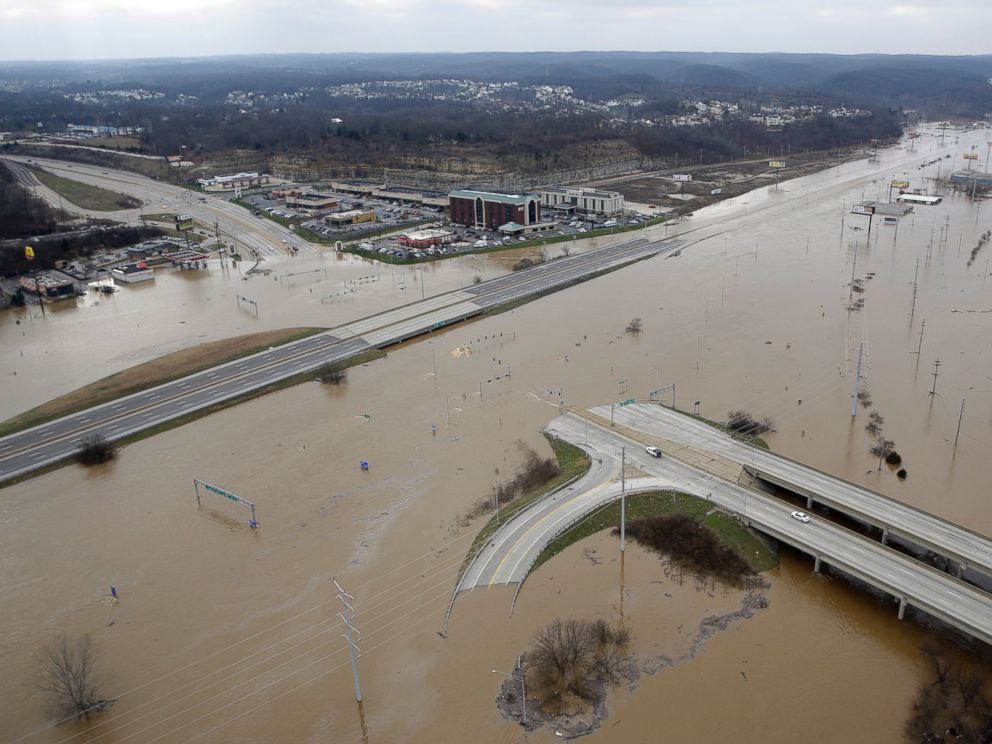
I’ve spent about half my career counting corpses.
In Detroit, D.C. and Atlanta, murder meccas all, I was a police reporter. In Arkansas, we rotated “tornado watch” weekends. At USA Today, I covered five mass school shootings and innumerable “regular” ones at workplaces, malls, etc. I grew so tired of preying on the grieving I applied for a transfer to the most lace curtain beat in journalism: film and TV. I haven’t regretted a moment.
Alas, it’s time for another body count.
I realized this while reading a story yesterday about a new study in Science Advances that forecasts that, in the near future, global warming could turn serial killer. “If the global average temperature rises 3 degrees Celsius (5.4 degrees Fahrenheit) above pre-industrial levels,” the study said, “a major heat wave could kill almost 6,000 people in New York City. Similar events could kill more than 2,500 in Los Angeles and more than 2,300 in Miami.
The story was accompanied by a headline that read “Without swift action on climate change, heat waves could kill thousands in U.S. cities.”
There was nothing questionable in the article, which cited all the typical peer-reviewed data. The problem was in the headline and tone, an issue that afflicts most coverage of global warming. I call it Chicken Little Syndrome.
The syndrome posits this: Any news story that casts global warming as a looming problem is failing its readers. Looking forward is not the answer. Any story that says “by 2030,” or “in a decade,” or, god forbid, “by the year 2100” has already told its readers “Don’t bother reading this story, it won’t happen for years.” But in truth, the sky isn’t falling; it’s felled.
Yet we continue to view global warming as something down the road. Harbingers don’t work in America. We barely finish our taxes every year. If our computer takes more than 15 seconds to buffer, we haul ass to the Genius Bar. This is the era of Now. And we’re supposed to expect the nation and its leaders to be proactive years in advance?
Fuck that. The only way to treat a problem is to recognize when you have one. Global warming is well underway; let’s get a death toll started and monetary damages bill going now. What, exactly, are we waiting for? God to write it in clouds? Trump to concede we’re not getting punked by the Chinese?
No, this requires a death toll. One need look back only a year to get the figures rolling. Last year, the Institute for Atmospheric and Climate Science issued a report that said “2018’s hemispheric heat wave wasn’t possible without climate change.” In that heat wave, in Japan alone, at least 138 people died from heat-related causes and 71,266 required hospitalization for heat stroke. Another 42 people died in South Korea. Quebec reported 70. That’s 250 deaths in that microcosm of Earth alone.
Meanwhile, today marked the 137th day the Mississippi River has been at flood stage, stopping barge traffic in Baton Rouge entirely. The last time the Mississippi was this high, the federal government built a federal barge system. There’s a start for your financial estimates, and you don’t even need to look overseas.
Why are so afraid to start the toll? That it will be lost in political grifting? That it won’t get ample clicks on news sites? That the numbers will be inaccurate? While the first two concerns are legitimate, they pale in comparison to the benefit of the third. Because body counts work.
Cities use fatality rates to determine police department sizes. Consider: without a body count of 57,939 soldiers, do you think we would have left Vietnam when we did, or instead trusted the reassurances of the Trumps of this world? Would the Holocaust have been so burned into our consciousness without the number 6 million? I hate corpse-counting, but sometimes it’s the only true measure of loss.
Certainly, a global warming death toll would be controversial (which is why an international organization like the United Nations needs to launch it). Political ambition, religious conviction, and simple scientific disagreement will make the figure a hot potato issue. And a very rough estimate.
But getting an absolute number is not the point. The point is to change mindsets. We did it with smoking. We did it with seat belts. Those annual fatalities are also nebulous and perennially disputed. But the most important shift has already occurred. We may not know exactly how many people die from smoking or not wearing seat belts every year. But we know the behavior is stupid. And since the realization, annual fatalities have fallen.
Sometimes, the digits of a number are less important than the knowledge of their existence.

